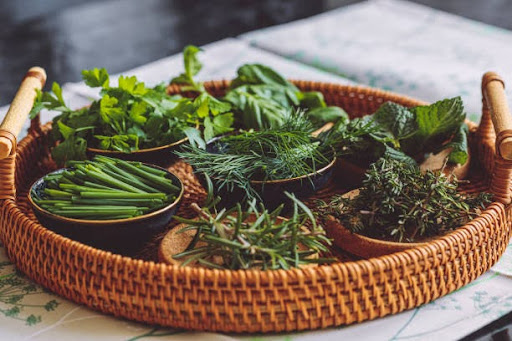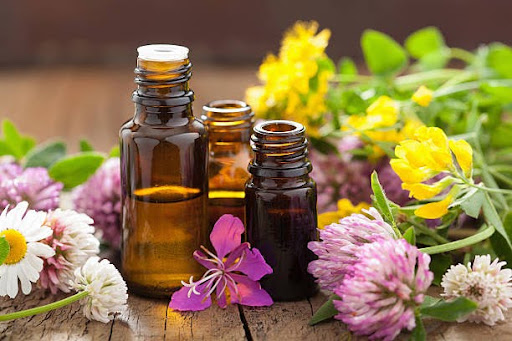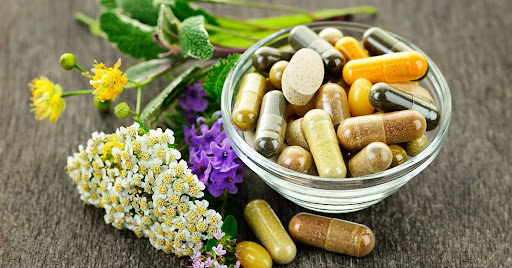Organic Farming & Herbalism: How Sustainable Agriculture Supports Herbal Remedies
Since people are paying more attention to health and the environment, Organic Farming & Herbalism now help us stay well and live sustainably. Since these two areas are connected, they support each other and assure biodiversity, proper soil and high-quality materials for natural remedies.
Since people today look for remedies found in nature, there is a stronger link between organic farming and herbal healing. Herbs are useful in herbalism as long as they remain pure and free from chemicals which only happens in organic farming. It forms the main reason why herbal medicine is sustainable.
Rise of Organic Farming & Herbalism and the Changes it Made for Herbal Medicine
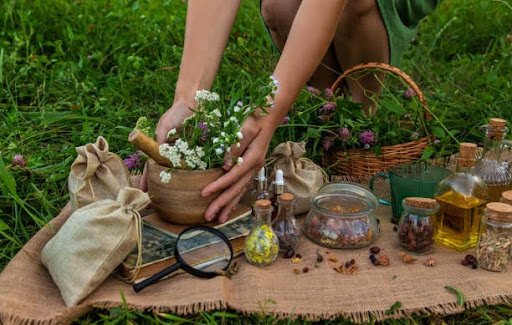
In the past few years, the world’s demand for organic foods has increased a lot. Farmers, herbalists and those who care about the environment are paying attention to how important it is to grow crops without pesticides, GMOs and chemical fertilizers. Taking part in organic farming ensures that what you pick for your tinctures, teas and salves will contain no harmful chemicals.
The old tradition of herbalism never forgot to mention that the environment plays a big role in healing sickness. Plants such as chamomile, echinacea, turmeric and lavender get their highest level of healing effects when they are raised in fertile and unpolluted soil. Methods of organic farming support healthy crop switching, compost production and eco-friendly ways to deal with pests to protect the useful properties in herbs.
The success of herbalism depends a lot on the quality of soil and presence of a variety of species.
Because soil health is important, sustainable agriculture promotes the success of high-rate herbal crops. In comparison to traditional farming which uses too many chemicals and the same crops, organic farming helps to increase the soil’s biodiversity and more microbes. They are necessary for plants’ well-being and also add to the richness of herbs used in medicinal drinks and supplements.
Thanks to Organic Farming & Herbalism, more people now care about preserving native plants and wild as their population is threatened by modern industrial farming. So that herbalists can use a wide variety of plants and keep utilizing traditional healing, conserving them is very important. Often, holistic farms decide to grow herbs from old lines that are helpful because of the special therapeutic compounds they contain.
A Smart Process That Starts with a Seed and Ends With a Ready Remedy
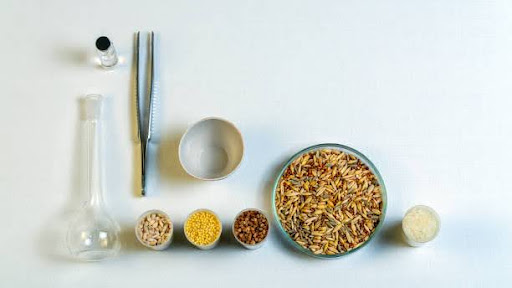
How effective herbal remedies are depends mainly on the quality of the plants used. The planting of herbs in natural ways makes sure their essential chemicals, like oil, alkaloids, flavonoids and tannins, remain as they naturally are and help them heal. Organic farms usually harvest by hand which supports healthy plants and guarantees all the drug’s advantages remain available.
The process which is from seed to harvest and finally to the herbal product, leaves no chance for synthetic pollutants to be present. Many people with such problems rely on herbal remedies because they are safer choices compared to medications made synthetically.
Ethical herbalism is supported by following sustainable practices.
Ethics in the way farmers, manufacturers and producers operate has recently become a serious concern in wellness. With natural remedies getting more popular, demand for herbs has hurt the environment in certain regions. Organic farming deals with this problem by offering different ways to grow plants that people do not need to collect in the wild. Because of this change, wild ecosystems are protected and the entire process of supplying herbs is accountable and traceable.
When they use natural and sustainable farming, herbalists guarantee that their remedies are true to their values. A lot of consumers now prefer to know how their products are produced and organic farming meets this desire with set standards and eco-friendly ways of farming.
Farming using organic methods helps preserve herbal traditions shared by people in communities.
Another important effect of the union between Organic Farming & Herbalism is that it supports both nearby communities and ancient knowledge. Most times, small-scale organic farms team up with herbalists, indigenous healers and local co-ops to cultivate medicinal herbs that are typical in their area. By collaboration, both cultures are maintained, old knowledge is spread and there is a rise in local economy thanks to eco-conscious businesses.
In various parts of the globe, herbalism means a cultural tradition, not just a method of medicine. Sustainable farming gives room for local herb growers and traditional medicine specialists to keep practicing what they do, following environmentally friendly steps.
Organic Farming & Herbalism are the main supports of preventive health.
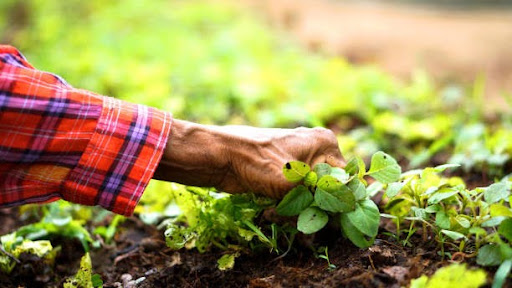
Since holistic health is now more popular, preventive care is becoming more important. Nowadays, more people are choosing to help their body protect itself using herbal remedies instead of treating diseases when they occur. If made from organically grown herbs, herbal teas and adaptogenic tinctures as well as supplements are gentle, helping your body naturally in the long term for immunity, digestion, sleep, stress and hormone levels.
Organic Farming & Herbalism have a greater role in such circumstances. Herbal care that prevents problems requires herbs that are always pure and reliable which comes from sustainable farming. Those who buy herbal products grown in organic farms are assured that their products do not include harming additives and have not lost their important bioenergy and natural components.
Benefits to the environment come naturally with benefits to health.
The relationship is strong mainly because it benefits people and the environment at the same time. By using organic ways to farm, less pollution happens in water, more carbon remains stored in healthy soils and the Earth’s natural resources are better protected. At the same time, the remedies made from this farming have natural ingredients that support a person’s body without causing side effects.
There is a two-way link between being healthy and caring for the environment which agrees with the ideas in sustainable agriculture and holistic herbal medicine. Assisting an individual helps the organization as a united team.
Wellness in the future will depend on having things work together organically.
Since we’re dealing with climate change, harm to the environment and more cases of ongoing disease, Organic Farming & Herbalism is setting an example for the future. By combining eco-friendliness and personal care, it becomes a great alternative for medical care in our time.
Thanks to progress in herbal studies, the certification of organic products and people paying more attention to their health, it is now simple to choose this method. Whether you buy herbal products, use herbs or make farmers’ income by farming them, picking organically grown herbs supports an earth-friendly, tradition-loving and wellness-focused system.
Conclusion of Organic Farming & Herbalism
There is a strong connection between Organic Farming & Herbalism that shows how advisory ideas from the past and today’s focus on the environment go together. Organic farming of herbs guarantees that their usefulness is kept intact and benefits the planet. Because more people are interested in sustainable living and natural health, this company will greatly influence changes in health and farming. Buying organically grown herbs helps not only your health, but also makes the environment and world cleaner, greener and healthier.
